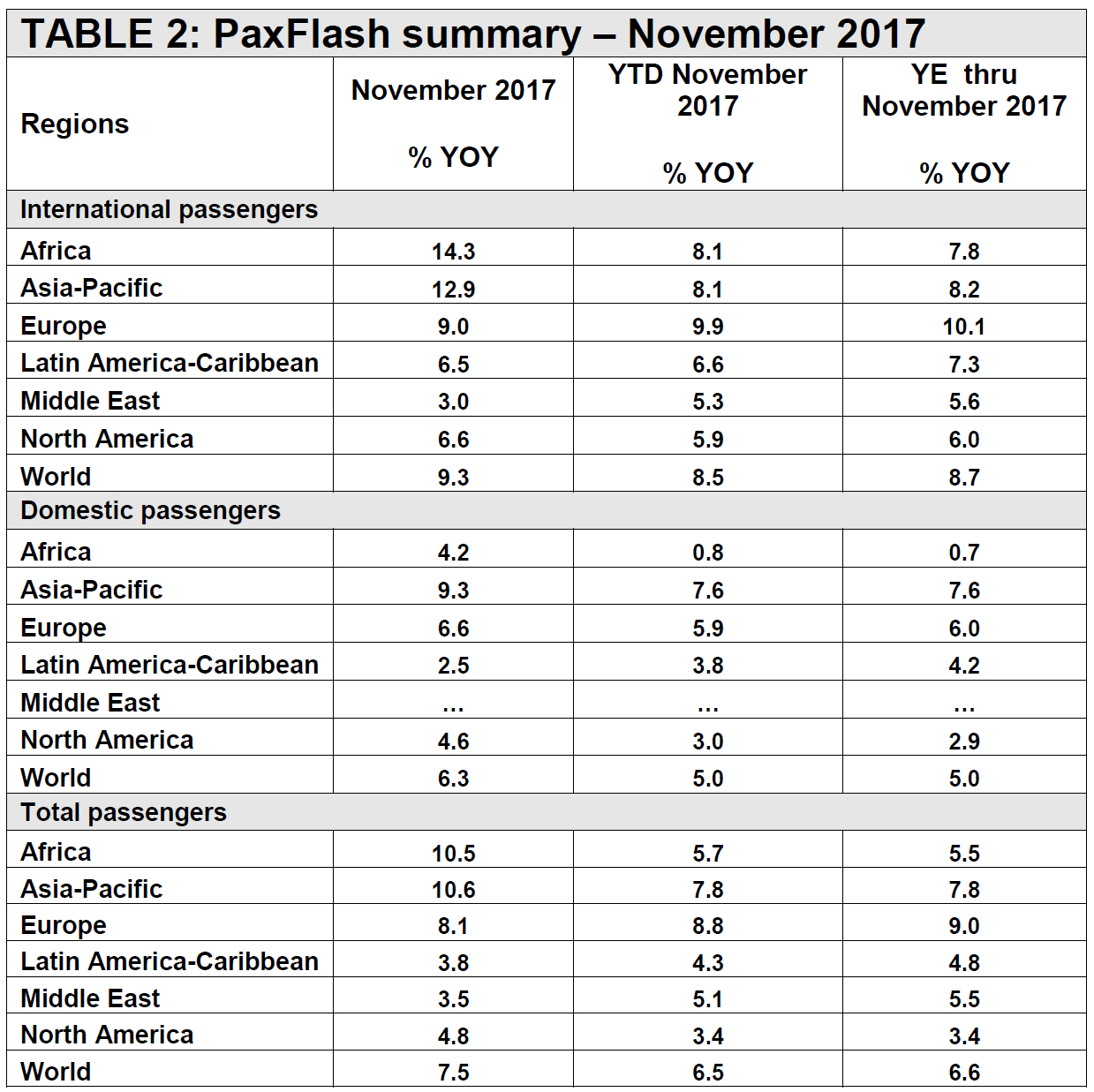INTERNATIONAL. Passenger traffic at the world’s airports surged by +7.5% year-on-year in November 2017, according to Airports Council International (ACI). It puts airport passenger volumes on track for a record year, noted ACI World. The growth in November was ahead of the +6.5% average for the year to date (January to November).
Asia Pacific (+10.6%), Africa (+10.5%) and Europe (+8.1%) all posted healthy traffic growth in November. International traffic was a key driver for these increases, especially for European and Asia Pacific markets, noted ACI.

The organisation said: “Strong overall business and consumer confidence continued to boost carriers offering low-cost options. Africa continued to experience a strong recovery, following the recession, which affected the continent’s largest economies: Nigeria and South Africa. On the other hand, Asia Pacific’s domestic traffic rose significantly during the month, reaching +9.3%. The figure remained below the region’s international traffic growth, however, which stood at +12.9%.”
Total passenger traffic in North America, Latin America-Caribbean and the Middle East grew at a more moderate pace, reaching +4.8%, +3.8% and +3.5% respectively. Both North America and Latin America-Caribbean were negatively affected by weather events during September, the effects of which are receding. The Middle East’s growth was still disrupted by tensions between major players in the region, with conflict in Yemen and the diplomatic crisis between Qatar and other Gulf states still underway.
Asia Pacific’s largest domestic markets posted significant growth in November, with Indonesia’s passenger traffic rising at +17.9%, Thailand at +15.9%, India at +14% and China at +12.5%. On a year-to-date basis, India and Indonesia are set to post double-digit growth in 2017.
In Latin America-Caribbean, international passenger traffic reached +6.5%, close to its year to date figures of +6.6%, after sustaining decline in October. This recovery could bring the region’s growth rate to over 7% by end-of-year, said ACI.














